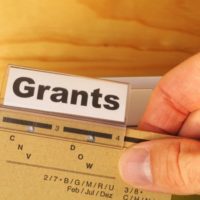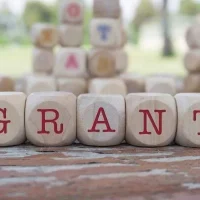Deadline: 23-Sep-21
European Commission is calling for proposals for Enabling Discovery and Interoperability of Federated Research Objects.
Scope
Align and support the development and implementation of common EOSC methodologies, open standards and frameworks to ensure wide uptake and coherent implementation of the FAIR principles, to support the FAIRness of the research digital objects made accessible through EOSC.
Focus Areas
Proposals should cover all of the following areas and activities:
- Persistent identifiers:
- Support the creation of a coordination mechanism of EOSC PID Service Providers to respond to the needs of research and Open Science, in a way that ensures sustainability, continuity of services and innovation.
- Promote the alignment of PID infrastructures in line with the EOSC PID Policy.
- Support the continuous standardisation of resource types and promotion of new practices to expand the range of identifiable objects e.g. instruments, services, organisations and software.
- Metadata and ontologies:
- Support the development of governance structures at discipline level for coordinating the work on metadata and ontologies and ensure overall coordination within EOSC.
- Develop EOSC guidelines for a minimum metadata description for data discovery and metadata exchange, based on existing or emerging metadata schemas and tools.
- Develop EOSC guidelines for common standards to archive, run, reference, describe and cite research software.
- Collect information about existing metadata schemas, ontologies, crosswalks, and tools for metadata management and disseminate best practices amongst EOSC-relevant repository operators.
- Support all research communities to develop and adopt disciplinary standards, to generate clear and precise definitions for the terms they use, and to consolidate common metadata and data schemata for use in the EOSC context. Provide support to make these definitions publicly available and referenceable by persistent identifiers for machine actionability.
- In carrying out the previous actions, proposals should take into account, and build collaboratively on, existing actions by established initiatives and organisations.
- Metrics, certification and guidelines for FAIR:
- Support research communities to implement existing or emerging metrics and make use of the FAIR data maturity model to develop assessment methods or to assess FAIR digital objects and iterate based on testing. Building on previous and current developments, for instance, by the ESFRI clusters, proposals should engage with new communities to accelerate the uptake of these best practices broadly.
- Translate FAIR guidelines and frameworks to make them applicable to other digital objects, such as software, code, data management plans, protocols, etc.
- Interoperability:
- Agree and implement a common set of rules to ensure data and services within EOSC support interoperability.
- Promoting the use of already existing common technical specifications, standards or infrastructure, endorsed by the various scientific communities.
- Foster alignments with existing frameworks and standards from non-scientific large data sources of interest for research and, where appropriate, promote in such context the implementation of the FAIR principles as means to improve interoperability.
Funding Information
The check will normally be done for the coordinator if the requested grant amount is equal to or greater than EUR 500 000, except for:
- public bodies (entities established as a public body under national law, including local, regional or national authorities) or international organisations; and
- cases where the individual requested grant amount is not more than EUR 60 000 (lowvalue grant).
Expected Outcomes
Project results are expected to contribute to all the following expected outcomes:
- improved findability, accessibility, interoperability and re-usability (“FAIRness”) of data and other research outputs by coordinating the implementation of frameworks and the alignment of FAIR data practices on metadata, persistent identifiers, etc.;
- wide uptake of and compliance with FAIR data principles and practices by national and European research data and metadata providers and repositories, leading to the development of the Web of FAIR data and related services;
- contribute to the Horizon Europe EOSC Partnership.
Eligibility Criteria
To be eligible for funding, applicants must be established in one of the eligible countries, i.e.:
- the Member States of the European Union, including their outermost regions;
- the Overseas Countries and Territories (OCTs) linked to the Member States;
- eligible non-EU countries:
- countries associated to Horizon Europe
- low- and middle-income countries
For more information, visit https://bit.ly/37WcAtw





![Call for Applications: “Voices in Motion” Program [Sri Lanka] - fundsforNGOs Call for Applications: “Voices in Motion” Program [Sri Lanka]](https://www2.fundsforngos.org/wp-content/uploads/2023/04/dance-200x200.jpg)



































